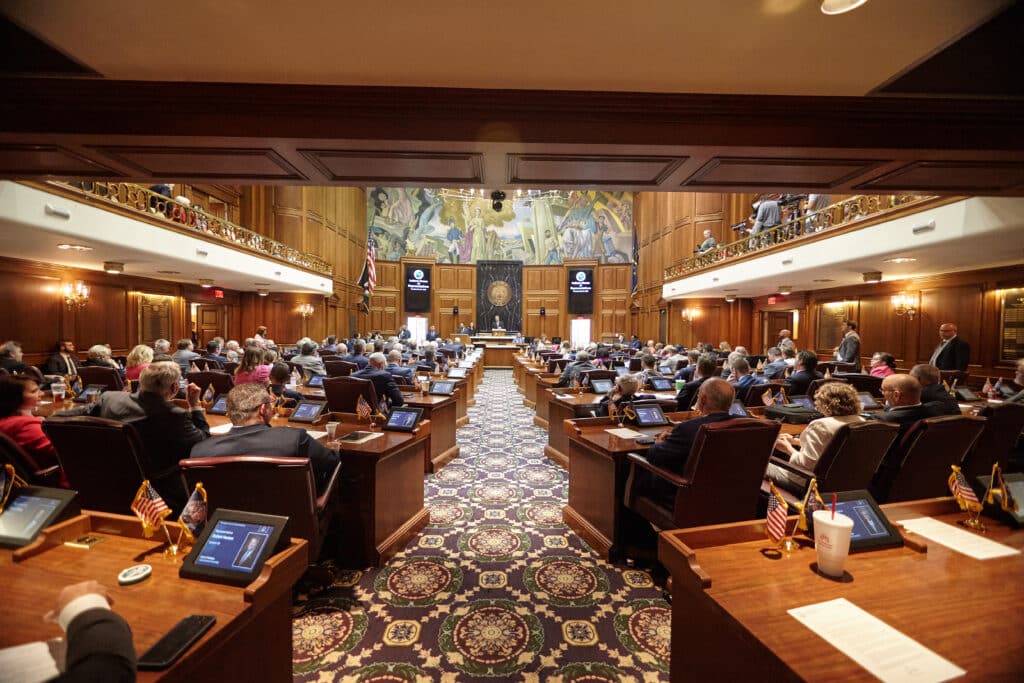
North Carolina’s Republican-dominated General Assembly may be all-in on the once-fringe legal theory that the U.S. Supreme Court plans to consider this fall, but it doesn’t appear Indiana is headed that way anytime soon.
The court in Moore v. Harper will decide if the U.S. Constitution gives only state legislative bodies the power to regulate federal elections in their states, without state court oversight.
Legal experts recently warned a congressional committee that if the U.S. Supreme Court upholds the case that embraces the election theory, it would undermine future elections across the country.
“I think it was fair and balanced and we heard from lots of Hoosiers, so probably just keep it the way we’ve been doing it – from my point of view,” he added.
Meanwhile, House Elections Committee Chair Rep. Tim Wesco said, “I’m afraid I haven’t heard anything about it.”
The case centers on the independent state legislature theory, which hinges on the reading of the word “Legislature” in the Constitution’s Elections Clause and Electors Clause. The word has traditionally been interpreted as meaning states themselves, but theory adherents argue it refers only to a state legislative body.
“The Constitution is notoriously vague on … who qualifies as a legislator,” said Laura Merrifield Wilson, a political science professor at the University of Indianapolis. “Oftentimes, it’s been viewed as any elected official, that would include someone in the executive branch, like the governor. [The theory] is the perspective that the state legislatures ought to have more rights.”
“When I was in graduate school 10 years ago, this was never anything we talked about,” Wilson added. “Not that it hasn’t existed, but it was so on the fringe that it was not a conversation piece. But it is certainly prevalent now for a lot of reasons.”
Voting rights advocates are watching with apprehension.
Julia Vaughn, executive director of elections watchdog Common Cause Indiana, said the Supreme Court’s approval of the theory could allow state lawmakers to flout state laws and state court oversight.
“If this decision were to go the North Carolina legislature’s way, it would set a dangerous precedent for states across the country,” Vaughn said. “The Indiana General Assembly already has pretty free rein when it comes to redistricting, so we certainly don’t need a court decision that removes any oversight.”
Indiana Capital Chronicle is part of States Newsroom, a network of news bureaus supported by grants and a coalition of donors as a 501c(3) public charity. Indiana Capital Chronicle maintains editorial independence. Contact Editor Niki Kelly for questions: info@indianacapitalchronicle.com.